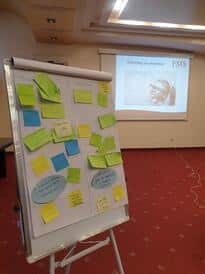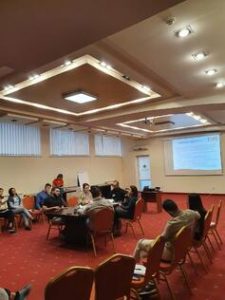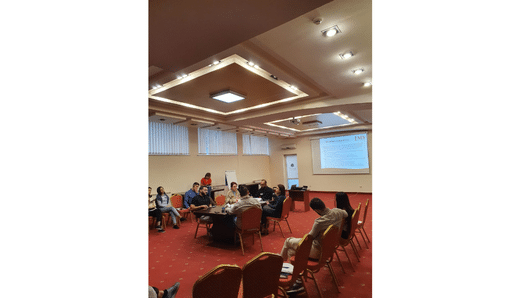From 25 to 27 November, the "Building a Civic Platform" training took place in Armenia with our partner SD Platform Armenia. Amidst an impressive mountainous setting, 15 participants were trained for three days on various political topics and skills.
SD Platform Armenia

The SD Platform has been doing important work for several years to motivate young people across the country to bring about political change from the bottom up and is visibly making a strong development in engaging young people in social democratic politics. The focus of the training was therefore on skills such as political planning, volunteer organisation, negotiation and communication strategy. The 15 participants at the training are part of a young generation of political stakeholders, with impressive motivation to address and tackle various socio-economic, social and geopolitical problems in Armenia. During the trainings, several concrete plans were made around environmental, economic and educational issues. See more information on the SD Platform Armenia this page.
Geopolitics as an uncertain factor
Space for this in the Armenian political system remains limited, characterised by 'catch-all' parties and political elites that fail to address diverse issues. However, the country is one of the few countries worldwide that has become increasingly democratic in recent years According to Freedom House. Nevertheless, Armenia's geopolitical situation is worrisome. Since the Nagorno-Karabakh war with Azerbaijan in 2020, there have been serious concerns about the security situation vis-a-vis its eastern neighbour. Armenia is isolated with Russia as its only ally in the region - however, it is proving little reliable, as evidenced by the reaction after Azerbaijani troops invaded Armenian territory last September.

In view of Armenian democracy, it is therefore of great importance that the Western world draws attention to this security situation. The leading role played by France and the US in this regard still appears to be insufficient and the gas agreements the EU reached with Azerbaijan last July do not exactly contribute to the Armenian people's confidence in international support for their democratic institutions either.
A coherent strategy for Armenia therefore requires continued attention at the institutional level. At the "grassroots" level, the work and our cooperation with the SD Platform Armenia will continue to strengthen social democracy, and pluralistic political participation in Armenia on an ongoing basis.
The FMS would like to thank SD Platform Armenia for its hospitality, organisation and participation in the training.





